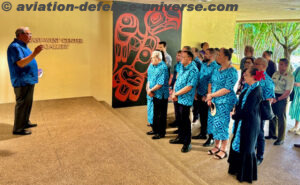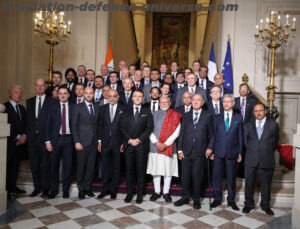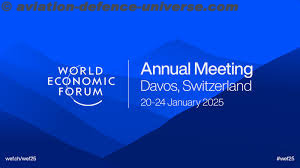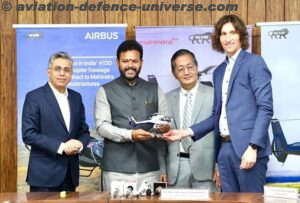·The seizure of 12 armoured vehicles in Hong Kong may trip long-standing relations
By Suresh Somu
Singapore. 01 December 2016. THE Singapore-China warngle over the seized armoured vehicles is creating a lot of red faces with no immediate amicable solution in sight.
This largest ever seizure of Singapore Armed Forces (SAF) war machines emerged on November 24 when 12 Terrex Infantry Carrier Vehicles (ICVs) were seized in the container terminal as they were en route from the Taiwanese port of Kaohsiung to Singapore. And within days, the long-going but discreetly low-key topic of SAF training in Taiwan came under the spotlight with many theories postulated.
Primarily, it brought to the regional glare four decades of military co-operation between Taiwan and Singapore, which an extremely unhappy Beijing has tolerated. The stand-off – in which Hong Kong is playing man in the middle – comes as China adopts and increasingly hostile attitude towards Singapore which has recently had strategic geo-political disagreements with Beijing.
Indeed, the Chinese government’s attitude towards Singapore has turned hostile in recent months as Beijing believes Singapore is backing the Philippines’ position on an international arbitration ruling on claims to the South China Sea.
Much as the regional media has made what an international observer says “a mountain out of a molehill over a dozen seized tanks”, with red-faced diplomats, working behind the scenes, hoping it could be just a diplomatic hiccup.
Xu Guangyu, a retired major general at the People’s Liberation Army, told The South China Morning Post newspaper: “I personally do not think we should complicate this simple incident. It should just be handled according to the relevant maritime law.
‘ACCIDENT’ PERHAPS?
“It does trigger speculation in such an international atmosphere, but I believe it is an accident, not something done on purpose to create tension.” He added: “Even if China wants to send Singapore a signal, there are numerous ways and channels. This case as leverage is just too loose and weak”.
Conspiracy theories are, however, up in the air, too. According to a report by the Hong Kong-based FactWire news agency, which first broke the article, the cargo ship carrying the military vehicles had set sail from Taiwan, but docked in Xiamen en route to Hong Kong, where the ICVs were found.
Quoting customs sources, FactWire said that, before the ship arrived in the city, mainland law enforcers informed their Hong Kong counterparts that the vessel contained undeclared military materials, and did not have an approval notice.
When it arrived in Hong Kong, customs officers searched the vessel and confiscated military materials, adding that the 12 Singapore-bound containers carried “suspected controlled items” at Kwai Chung container terminal during what they described as a “routine ship search”.
Even if Beijing is not directly responsible for the seizure, the fact that Beijing is able to influence or even break the logistics chain between Taiwan and Singapore will add pressure on Singapore.
Arthur Ding, a research fellow at the Institute of International Relations at Taiwan’s National Chengchi University, said Singapore might be in a somewhat “awkward” situation to conduct military exchanges with Taiwan now, at a time of strained relations between Beijing and Taipei.
“Because the Democratic Progressive Party is seen as pro-independence, if Singaporean troops continue to conduct exercises here, it might give people an impression that Singapore is supporting the pro-independence government,” he told The South China Morning Post.
TAIWAN: RENEGADE PROVINCE
China has for a prolonged period of time viewed Taiwan as a renegade province, and Singapore, to which China is taking an increasingly hostile attitude since it appears to slant the American-way and refuses to fully join China’s orbit.
Experts say the situation could indicate a shift in the relationship between mainland China, Taiwan, Hong Kong and Singapore, and signal an increasingly confident Chinese government signalling its readiness to thwart military alliances it dislikes, especially as the new US President-elect Donald Trump administration appears to offer less commitment to Asia.
“Sometimes you wonder why it’s happening now. There have been regular Singapore-Taiwan military exchanges for a long time and no similar incidents have been reported before,” said Andrew Vernon, a Shanghai-based journalist.
“So it is difficult to exclude the possibility of a strategic calculation,” he added. “In my view, it’s a very sensitive moment in South-east Asia, when the Obama administration is going out and the new administration is yet to take power. There is a rising gap of power in between.”
Now Beijing holds the trump cards and has a free hand to deal with the seized vehicles as it wishes, whether that is to release them, confiscate them or even punish Taiwan or Singapore, says Janet Low, a Hong Kong-based military analyst.
Playing down the tightrope situation, inside sources within the Hong Kong customs administration said the seizure of the vehicles was a result of a routine inspection rather than a move directed by Beijing. The discovery of the undeclared vehicles had already been reported to China’s Foreign Ministry in Beijing, and they’re now left to call the final shots.
China’s Foreign Ministry spokesman Geng Shuang said all personnel and shipments in and out of Hong Kong must follow local rules and that the Chinese government always opposes any sovereign state conducting any form of governmental exchange with Taiwan, including joint military activities.
ROTTEN IMAGE
“Singapore’s image in China is now so rotten that ordinary Chinese people think the best thing to do with the ‘confiscated’ armoured vehicles that ‘walked right into our trap’ is to send them to the steel mills to be melted down,” the editorial said in its widely-read Chinese language edition.
Stroking more fuel into the diplomatic fire, it added that Singapore should make use of the incident to find “enlightenment” rather than provoke Beijing’s anger further. “All incidents have causes – to grasp and understand them is always wise,” it said.
Singapore’s actions that change public opinion about China will “result in a possible adjustment to Beijing’s foreign policies profoundly impacting Singapore’s economy,” the newspaper further warned.
The Global Times said Singapore is becoming a platform for Washington to contain and deter Beijing. “Singapore claimed it was not picking sides in the South China Sea disputes, but its remarks about the issue are far from neutral; instead, it has actually complicated and expanded the scale of the case.”
Singapore Foreign Affairs Minister Vivian Balakrishnan, however, made it clear that China and Singapore has a “long standing and mutually beneficial relationship, though there may be disagreements from time to time”.
He reiterated that Singapore’s priority is to avoid embarrassing Beijing. He said: “This is a long and wide-ranging relationship and we will not allow any single issue to hijack it. You all know, and everyone including China knows, that we have special arrangements with Taiwan for a long time. What we are doing there is no longer a secret, everybody knows this.”
But Singapore has been “very consistent and transparent” in the position that it takes, even if differences in perspectives emerge, he added.
ONE CHINA POLICY
Balakrishnan emphasised Singapore’s stand that the country has not shifted from its support of the One China policy and that it values its longstanding relationships.
“One thing in Chinese culture is you never forget your old friends, people who were there with you in the beginning, people who were there with you through thick and thin, and surely in Chinese culture, you appreciate this concept of loyalty to old friends,” he said. “At the same time, you know full well where I stand, and I believe in One China and we will not deviate from that, we have not changed.”
Inevitably, it’s a distinct David versus Goliah comparison between the two countries although Singapore is known to try and punch above its weight despite its “little red dot” stature in international politics. But outspoken diplomat Mr Bilahari Kausikan, for example, has taken a more muscular line on his Facebook page. He underlined Singapore’s determination to take an independent approach to foreign policy.
“We cannot just be their mouthpiece, which is fundamentally what they want,” he said, referring to Beijing.
End of the day, the global muscles of a rising China cannot be under-estimated. Alexander Huang, a professor of international relations at Taiwan’s Tamkang University and a former government official who managed relations with Beijing, said the latest incident has serious implications for Taiwan.
“It’s not only a signal to Singapore or Taiwan but to the wider neighbourhood that China is now exercising more straightforward measures to strangle Taiwan’s external relationships,” he told Reuters.
He noted that Beijing has shown increasing impatience towards countries that defy its core defence and foreign policy positions, especially when it comes to the South China Sea and Taiwan.
And those that fall into line, like the Philippines and Malaysia, are offered the prospect of reduced tensions and significant financial support. Inevitably, countries that refuse to do so will have to deal with a Beijing willing to use an ever greater number of tools, from economic boycotts to customs seizures in Hong Kong, to enforce its will.
Singapore must seriously relook at its long-standing ties with China and negotiate a quick conclusion to this incident. Rocking the China boat will do no Asian country any long-term good, especially with a possible slight shift in US-Asia relationship under the Trump leadership, early next year.































































































































